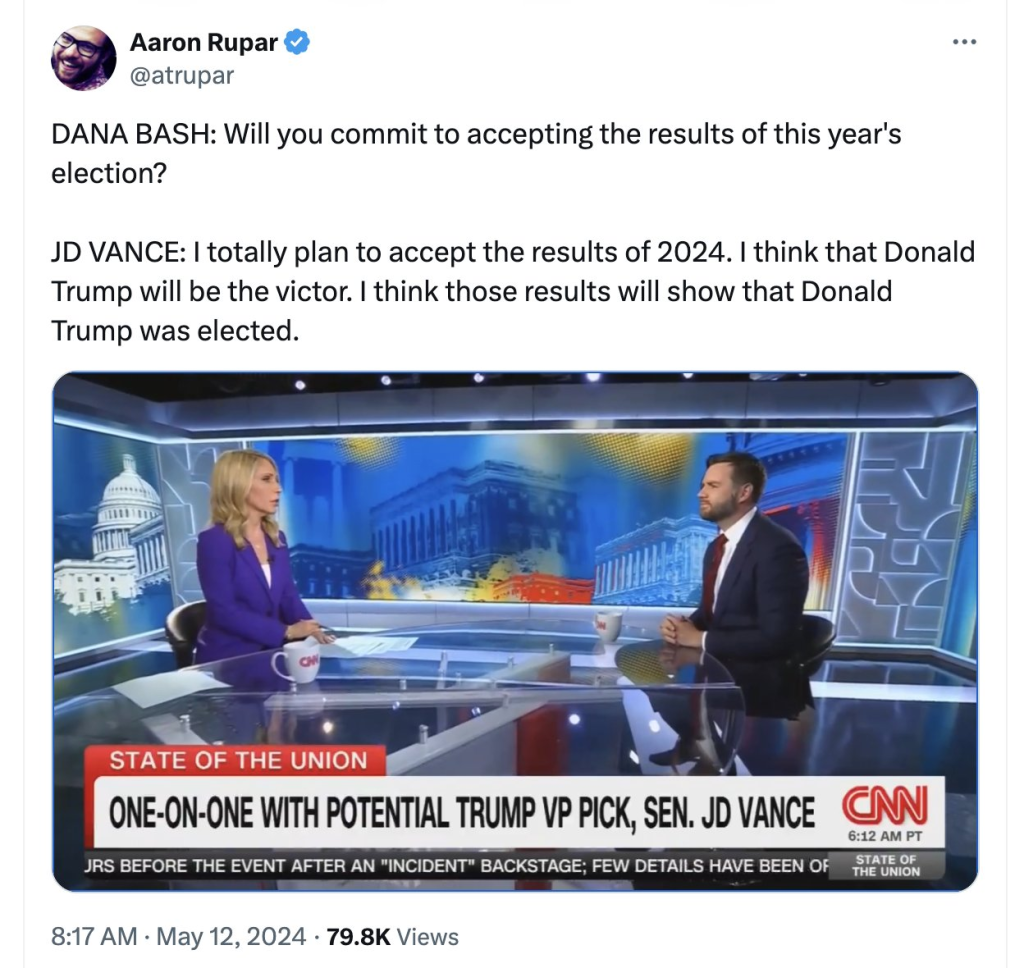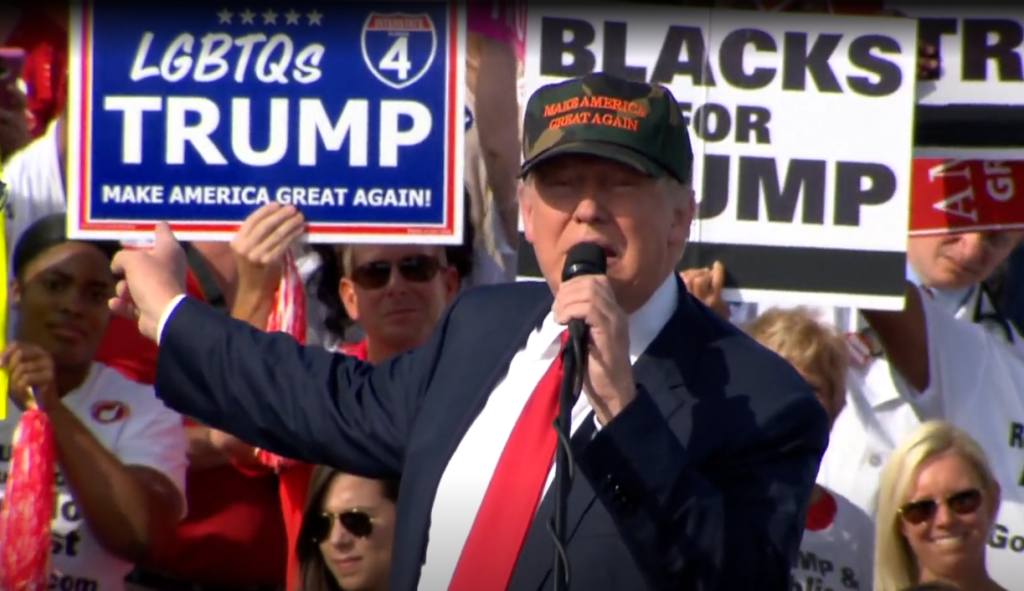What happens if Trump loses?
The media has recently shifted its attention to exploring what a second Donald Trump presidency might entail, sparking a broader discussion on the potential for increased authoritarian governance. The concerns stem from Trump’s previous tenure and his party’s actions, which have often hinted at a disregard for democratic norms. Observers fear that his re-election could lead to further erosion of civil liberties and a consolidation of power that could transform the governance of the United States into a more centralized and less democratic regime. This looming possibility has ignited widespread debates on the future direction of American democracy and the inherent risks of re-electing Trump.

While much focus is on what happens if Trump wins in 2024, there is also significant concern about the scenario of his defeat. Trump has made numerous hints that he would not accept a loss without contesting the results. His past behavior, including the refusal to concede after the 2020 election, underscores the potential for a contentious and unsettling response if he is not victorious. This creates an atmosphere of uncertainty, as the public and political analysts ponder how Trump and his base would react to an election loss, considering his considerable influence over his followers and his tendency to dispute unfavorable outcomes.

Trump’s situation in 2024 differs from 2020 because he would not have the advantages of incumbency, such as direct access to federal resources and the authority to direct executive actions to challenge electoral processes. However, his previous attempts to meddle with the election process, like deploying false claims and legal challenges, suggest that he and his supporters would still find ways to dispute an unfavorable result. This implies a possible continuation of strategies aimed at undermining the election’s legitimacy, which could involve legal battles and public disputes that could threaten the peaceful transfer of power.

The Republican Party’s alignment with Trump’s baseless assertions that the 2020 election was stolen suggests a collective readiness to deny the results of future elections if they are unfavorable to Trump. This party-wide agreement to support Trump’s narrative poses a significant threat to democratic norms, as it suggests that the GOP may be prepared to reject election outcomes based purely on the assertions of fraud, without substantial evidence. This could lead to a dangerous precedent where electoral legitimacy is continually questioned by major political figures.

Influential Republicans like Senator J.D. Vance and Tim Scott have openly discussed scenarios where they might support actions that defy traditional democratic processes, such as sending alternate electors or refusing to answer direct questions about election legitimacy. These statements indicate a willingness among some top Republicans to bypass democratic norms in order to support Trump’s claims, showing a troubling trend toward legitimizing undemocratic tactics within the party.

The Republican National Committee, now heavily influenced by Trump’s inner circle, has committed to supporting Trump’s narrative of a stolen 2020 election. This stance means that they are likely to dispute any loss in the 2024 election as well. Such an approach undermines the democratic principle that political parties should respect the outcome of free and fair elections, setting a concerning stage for future electoral disputes.

Trump’s 2024 campaign strategy includes casting doubt on the electoral process by promoting theories of potential fraud and encouraging his supporters to closely monitor polling places. He has specifically targeted key cities with significant minority populations, suggesting a tactic of voter intimidation reminiscent of past elections where observers harassed voters. This plan not only raises fears about the integrity of the vote but also about the safety and freedom of voters in these targeted areas.

Lara Trump, as the new chair of the Republican National Committee, announced plans to establish a large “election integrity” unit. This unit would deploy thousands of poll watchers across the country, allegedly to protect the vote. However, there are concerns that this move could lead to excessive scrutiny and potential harassment at polling places, especially in strategically important regions, thereby discouraging voter turnout or challenging the validity of the vote under dubious pretenses.

In preparation for a potential loss, Trump has arranged for legal teams to be stationed across key swing states, ready to launch allegations of voter fraud. This strategy indicates a premeditated effort to contest the election results through legal channels, moving away from the chaotic legal efforts of 2020 led by figures like Rudy Giuliani. By planning a more structured legal challenge, Trump is aiming to lend a veneer of legitimacy to his claims, potentially dragging out the election resolution process and sowing further division.

Trump has also made ominous threats about the consequences of his not winning, which have been echoed by his supporters and could incite violent reactions. His rhetoric suggests that losing the election could lead to severe national unrest, characterized by his use of the term “bloodbath.” This threat of violence hangs over his other tactics, adding a layer of intimidation and fear to an already charged electoral atmosphere. This, coupled with the rise of militia movements sympathetic to Trump’s cause, poses a serious risk to public safety and the overall stability of the country post-election.





